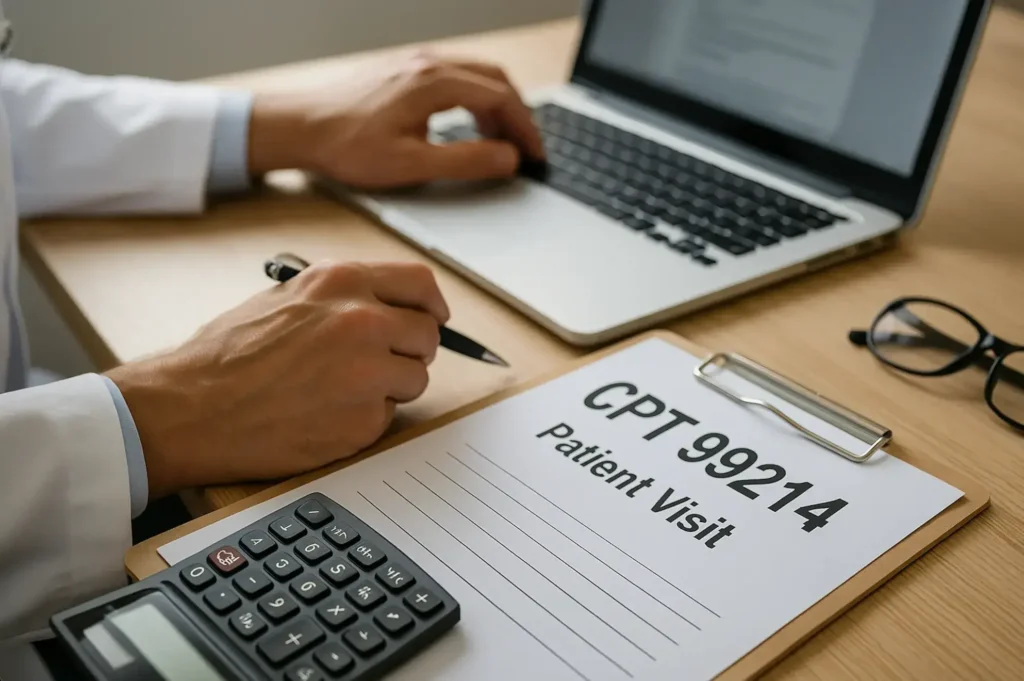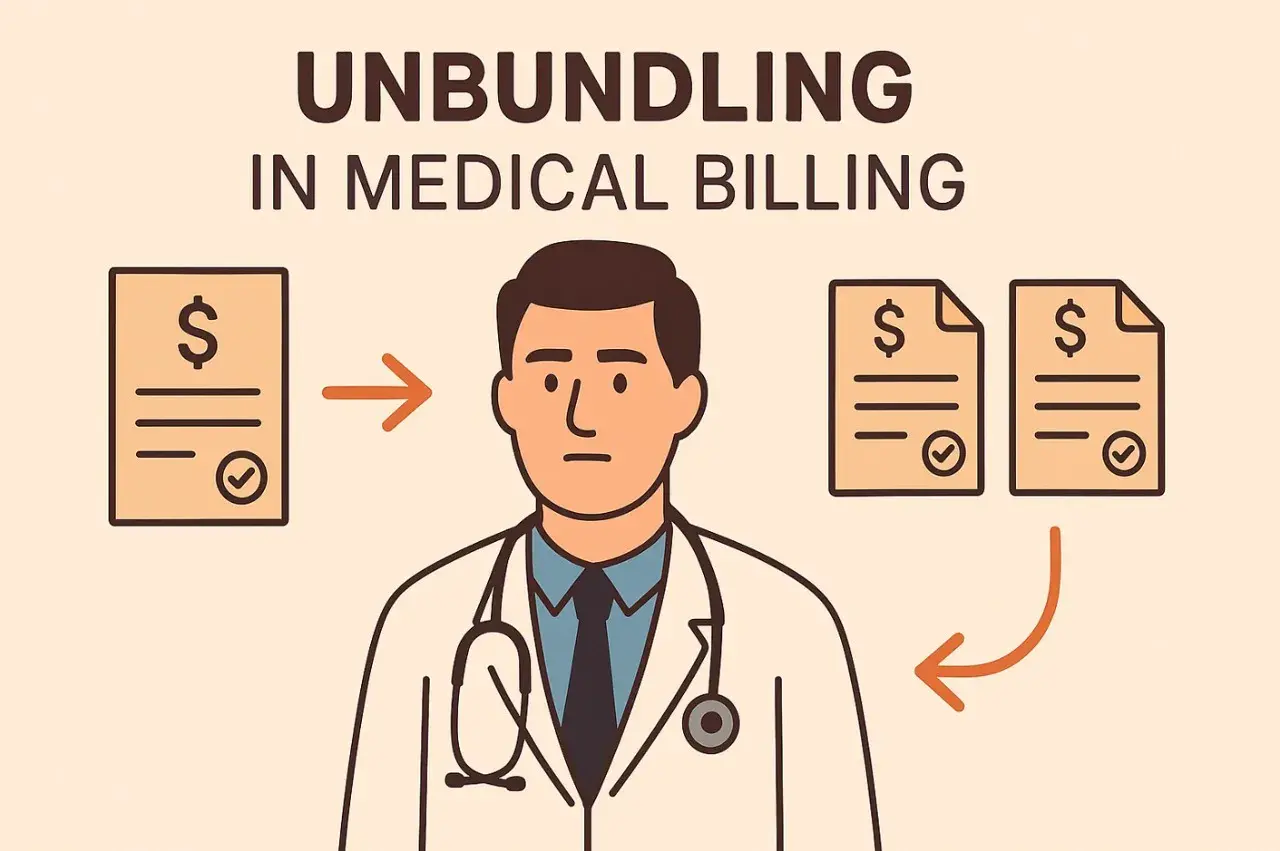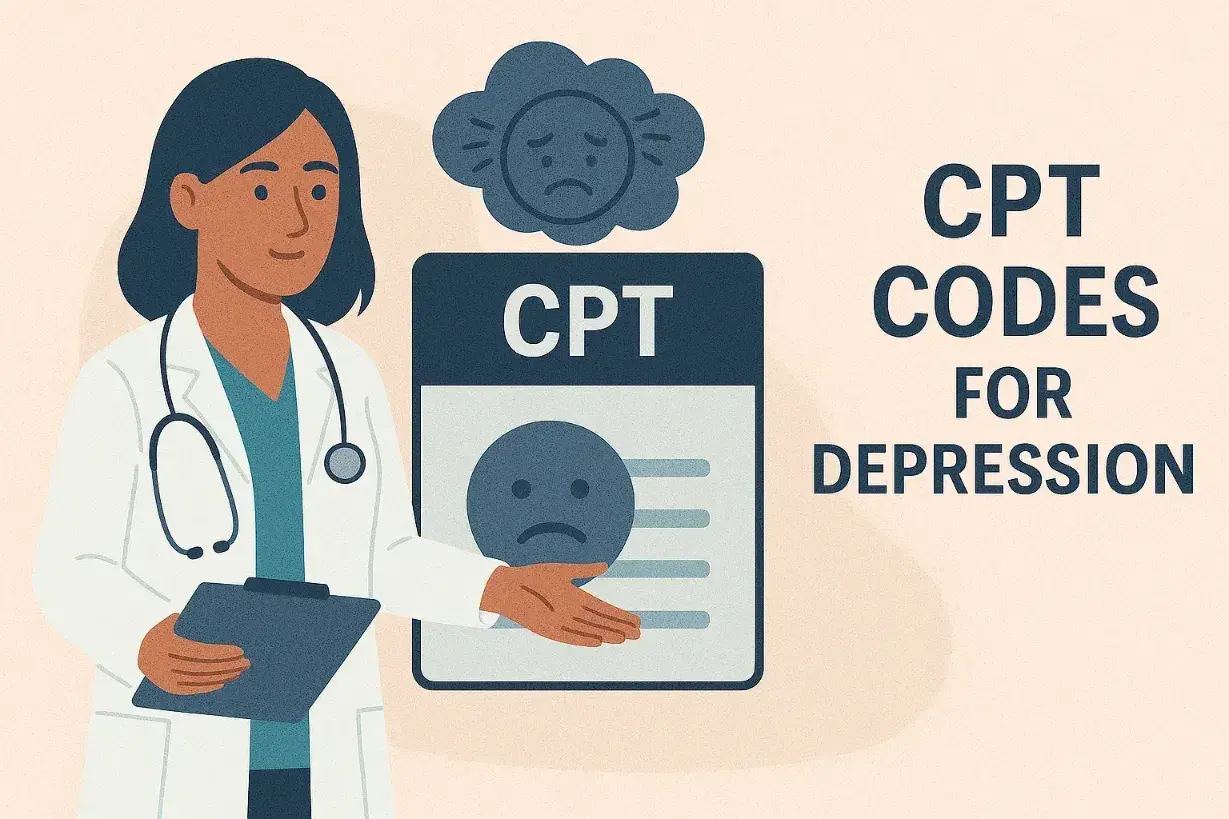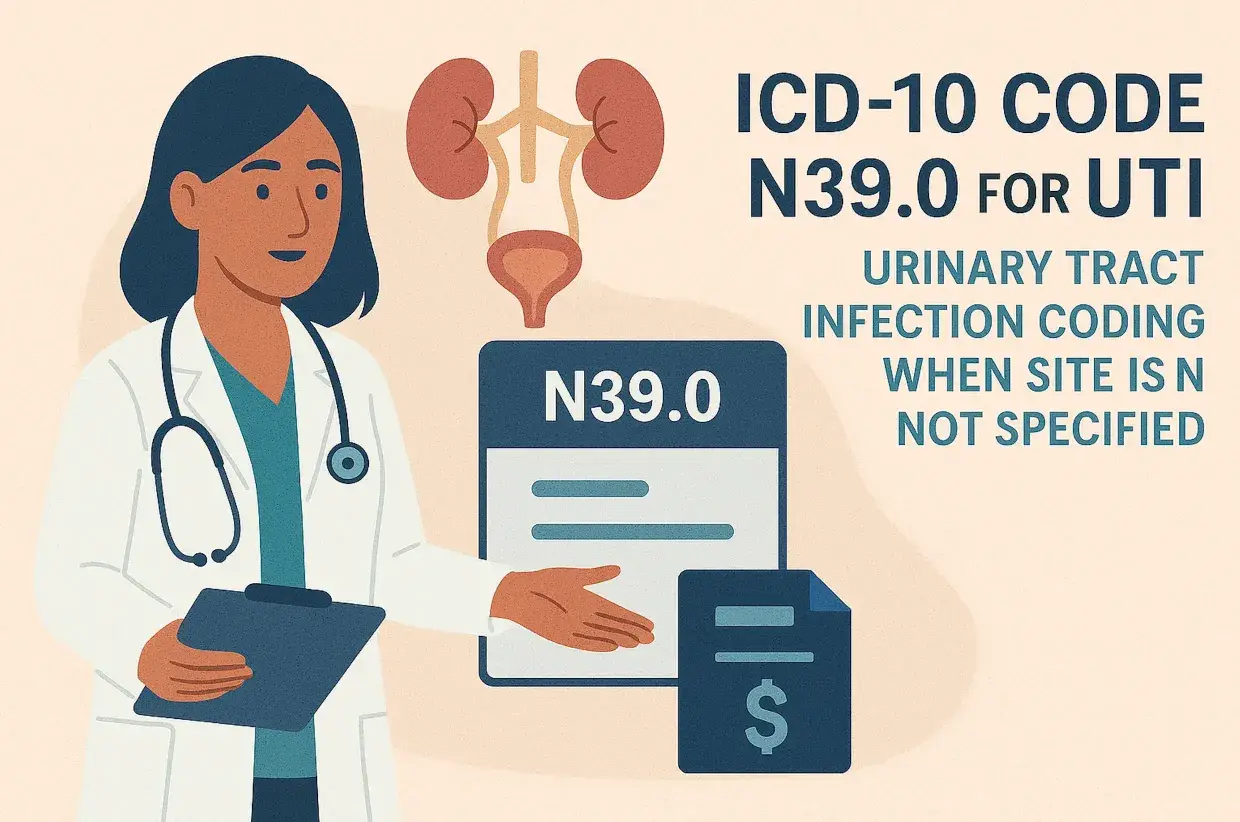Table of Contents
ToggleTop Healthcare Payers for CPT Code 99214
CPT 99214 is widely recognized and reimbursed by major public and private payers. Here’s a quick overview of how top insurers typically handle it:
| Payer | Average Reimbursement | Documentation Requirements |
| Medicare | ~$130–$150 | Time-based or MDM-based |
| Blue Cross Blue Shield | Varies by state | Follows CMS guidelines |
| Aetna | ~$125–$145 | Strict on MDM justification |
| UnitedHealthcare | ~$130–$160 | Supports telehealth use |
| Cigna | ~$120–$140 | Clear complexity explanation |
Reimbursement may vary depending on geographic location, network contracts, and modifier use.
What Is CPT Code 99214?
CPT code 99214 is one of the most commonly billed codes for outpatient office visits involving established patients. It reflects a moderately complex encounter and is often used when:
- A patient presents with chronic conditions needing active management.
- The provider performs a detailed history and examination.
- Medical decision-making (MDM) is of moderate complexity.
- The provider spends 30 to 39 minutes face-to-face with the patient.
Importance of CPT Code 99214 in Medical Billing and Coding
Proper use of CPT 99214 ensures:
- Accurate compensation for moderately complex visits.
- Compliance with payer guidelines.
- Better tracking of patient outcomes and treatment adjustments.
Common Medical Conditions Treated with CPT Code 99214
- Chronic illnesses like diabetes, hypertension, asthma
- Moderate acute conditions such as bronchitis, UTIs, pneumonia
- Mental health follow-ups for depression, anxiety, ADHD
- Post-surgical or wound complications that require monitoring
Who Can Bill CPT Code 99214?
Eligible Healthcare Professionals
- Physicians (MD, DO)
- Nurse Practitioners (NP)
- Physician Assistants (PA)
- Clinical Nurse Specialists (CNS)
Applicable Healthcare Settings
- Primary care practices
- Specialty clinics (e.g., neurology, psychiatry)
- Telehealth (when compliant with payer rules)
- Urgent care for non-emergent complex cases
Related CPT Codes Often Billed with 99214
- 99354 / 99417: Prolonged services if visit exceeds 39 minutes
- 96127: Screening for depression/anxiety
- 99213 or 99215: When complexity is lower or higher, respectively
Step-by-Step Guide to Using CPT Code 99214
Step 1: Patient Evaluation
Begin with a thorough history and review of systems. Ask about symptoms, treatment responses, lifestyle factors, and any changes in chronic conditions.
Step 2: Medical Decision-Making (MDM)
To qualify for CPT 99214, the MDM should be moderate in complexity. This may involve:
- Multiple treatment options or adjustments
- Risk evaluation for medication interactions or comorbidities
- Review of labs, diagnostics, or specialist input
Step 3: Time Management
You may bill 99214 based on time if:
- The total encounter lasts 30–39 minutes
- More than 50% of that time is spent on counseling or coordinating care
Step 4: Documentation
Key components to document:
- Chief complaint
- History and examination findings
- MDM rationale
- Time spent and how it was allocated (e.g., counseling, records review)
Step 5: Billing and Submission
Ensure your claim includes:
- Proper code (99214)
- Justifying notes for complexity or time
- Any relevant modifiers (e.g., 25, 95)
- Compliance with payer-specific policies
Reimbursement Guidelines for CPT Code 99214
Medicare, Medicaid, and Commercial Insurance Policies
- Medicare: Allows billing 99214 based on time or MDM.
- Medicaid: May require additional documentation or pre-authorization in some states.
- Private Payers: Often follow Medicare guidance, but may differ in accepted modifiers or telehealth policies.
Documentation Requirements for Successful Claims
- A detailed history
- A comprehensive exam
- Moderate-complexity MDM or 30–39 minutes of face-to-face time
- Counseling and care coordination notes (if time-based)
How to Maximize Reimbursement
Best Practices to Ensure Full Compensation
- Use modifier 25 if 99214 is billed alongside a procedure
- Use modifier 95 for telehealth when allowed
- Capture additional time with 99354 or 99417 if appropriate
- Always justify moderate complexity through examples in your notes
Common Billing Mistakes and How to Avoid Them
Frequent Coding Errors and Claim Denials
- Undercoding as 99213 despite moderate complexity
- Overcoding without full documentation support
- Missing modifiers when required by payer
Strategies to Prevent Billing Mistakes
- Train staff on current E/M guidelines
- Perform regular internal audits
- Use EHR templates that prompt for complexity elements
- Review payer-specific policies before submission
FAQs About CPT Code 99214
What is CPT Code 99214 used for?
It’s used for office visits with established patients that require moderate medical decision-making or last 30–39 minutes.
How does CPT 99214 differ from 99213 and 99215?
99213 is for low-complexity cases (~20 min), 99215 is for high-complexity (~40–54 min).
Can telehealth visits use CPT 99214?
Yes, if documentation supports it and payer policies allow it—use modifier 95.
Do I need to document time if I’m using MDM as the basis?
No, time is only required if billing is based on the total time spent during the visit.
What if I document 30 minutes but don’t meet MDM requirements?
You can still bill 99214 if over 50% of time was spent counseling or coordinating care.
Conclusion
CPT code 99214 plays a vital role in capturing the true complexity of care provided to established patients. With its higher reimbursement potential, it’s important to document visits correctly and avoid common pitfalls that lead to denials or audits. Whether you’re managing chronic conditions, coordinating multiple treatments, or spending extended time on patient education—CPT 99214 ensures your effort is recognized.
Let Swift Medical Billing Help You Code 99214 the Right Way
At Swift Medical Billing, we help providers code smarter, bill cleaner, and get paid faster. Whether you’re dealing with complex E/M documentation, payer denials, or time-based billing challenges—we’re here to ensure your practice stays compliant and profitable.
Get in touch today for a free billing audit and discover how we can boost your collections and accuracy.




